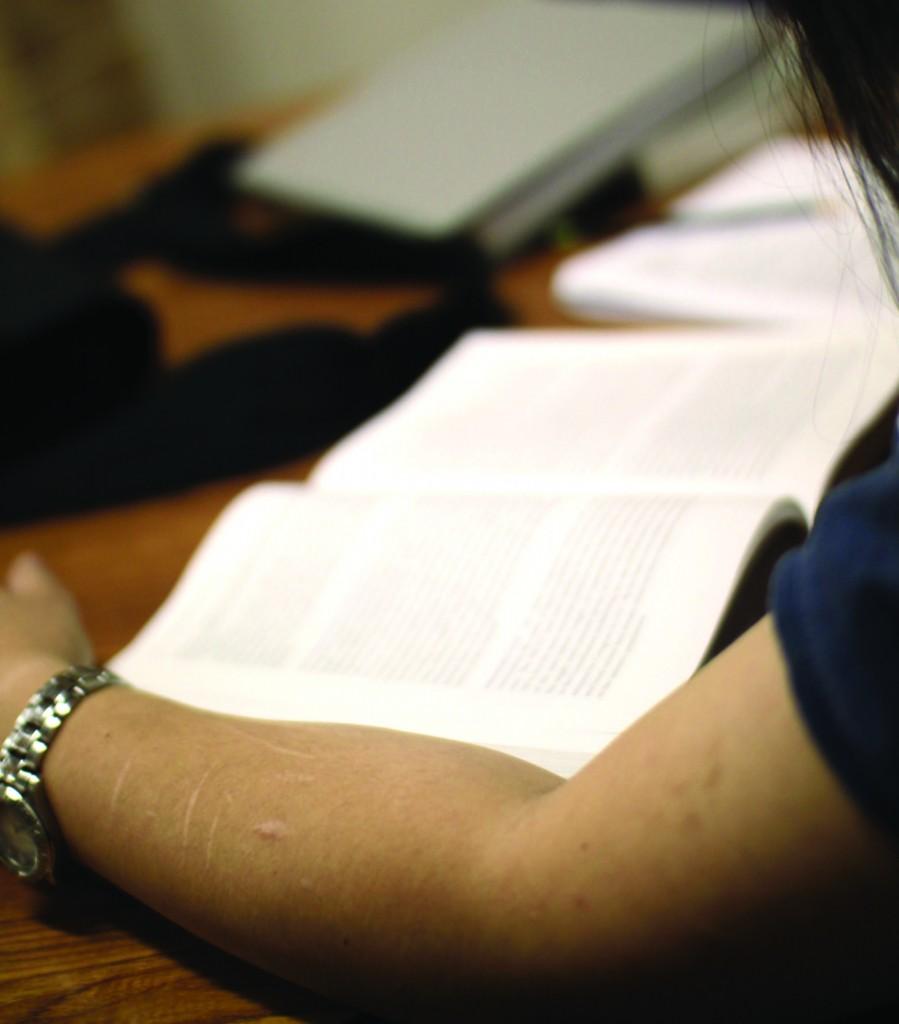By Ashton phillips/Reporter
In Calming Test Anxiety, a lunchtime workshop, Lori Leach said even though students can be completely prepared, test anxiety is still prominent, causing students to have physical and mental reactions that disable them from doing well on tests.
“Negative spiral thinking is the cause of most test anxiety,” she said. “Students begin by thinking, ‘I don’t know the answer to this question,’ which can then lead to ‘I am going to fail this class and never graduate.’”
Leach said the way to stop test anxiety in its path is to eliminate the negative thoughts as they come by turning one’s thoughts positive.
“If you begin to think that other students are finishing early because they are confident or more intelligent than you, turn your thoughts around,” she said. “Tell yourself, ‘Maybe, the quicker students do not know the answers and must guess or are not as thorough in checking their answers or the test instructions.’”
Leach said if self-talk is productive, it has a calming effect.
“What you tell yourself may not be entirely true, but if you convince yourself of the more positive reasoning, you can calm your anxiety for the time being to focus on the test,” she said.
“Taking questions one at a time is the way to go. If you need to take a quick mental break, change the subject in your head or breathe in and out for just 30 seconds of your time.”
Leach gave students a positive self-talk flow chart on how to change thoughts for different test anxiety scenarios as well as a handout on different breathing techniques.
Leach said three factors can determine if a situation is a threat: if someone perceives it as threatening, if it is beyond one’s capabilities and if the results are catastrophic. Leach said tests meet neither of the latter two factors.
If students think a test may be threatening, Leach said they should stop their negative thoughts there. By doing so, they can mentally halt their anxiety. This disables students from believing the test is beyond their capabilities, she said.
“During a test, remember to read instructions carefully, start on your strongest section first to boost your test-taking confidence, stay focused on the test-taking process, take 30-second mental breaks as needed and breathe,” she said. “Remember, breathing habits are essential. Poorly oxygenated blood leads to tight muscles and lack of clear cognitive thinking.”
Joey Taylor, a TR student enrolled in 17 hours this semester, attended the workshop for help.
“I came to the workshop in order to learn how to reduce my anxiety because I have an important test coming up,” he said.
“I thought she gave a very helpful presentation. I enjoyed learning about the different breathing techniques I can use.”
Leach said she welcomes students to visit her in the TR Campus advising office (TRTR 1408) for questions concerning test anxiety and any other academic or professional concerns.























